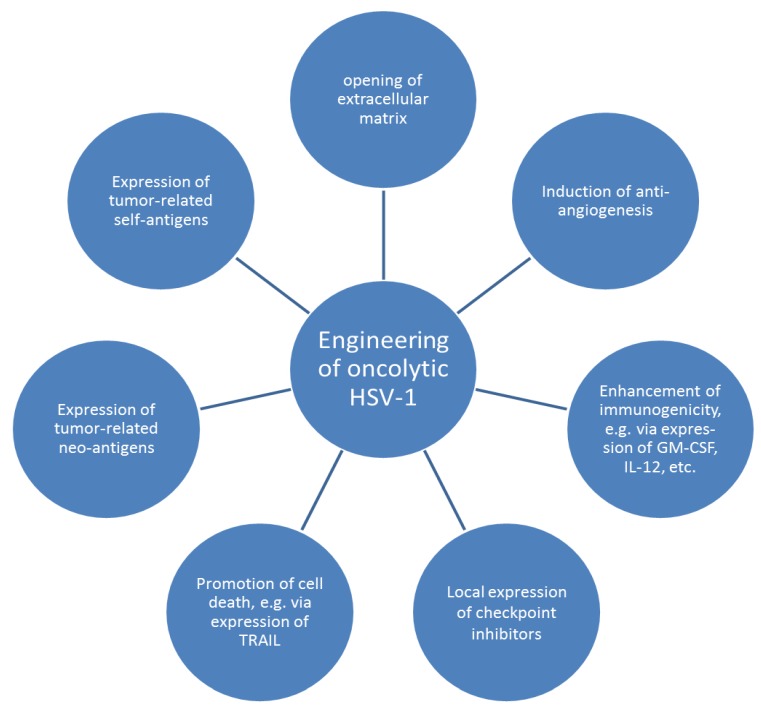Figure 2.
Prospects of optimizing anti-tumor activities via genetic engineering of oncolytic herpes simplex viruses 1 (HSV-1). HSV-1 can be designed to express proteins which modify the tumor environment, e.g., via restricting blood supply of the tumor, reducing barriers for efficient viral spread, enhancing influx of immune cells through production of pro-inflammatory cytokines, and/or contributing to local increase of immune cell activity. Engineered HSV-1 may also promote tumor cell lysis via expression of apoptosis-inducing ligands or stimulate different cells of the adaptive immune system as vaccine vector presenting neo- or self-antigens. Adapted according to [86].

